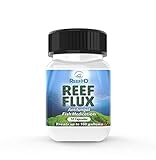Bristletooth surgeonfish and yellow tangs are both popular choices for saltwater aquariums. They are both relatively peaceful fish, and they can coexist in the same tank. However, it is important to provide plenty of hiding places and plenty of swimming space, as yellow tangs can be aggressive towards other fish.
What are the minimum tank requirements for keeping bristletooth surgeonfish and yellow tangs?
The minimum tank requirements for keeping bristletooth surgeonfish and yellow tangs are a minimum of 75 gallons for the bristletooth surgeonfish and a minimum of 100 gallons for the yellow tang. Both of these fish require a lot of swimming space and also need room to graze on algae.
The yellow tang is also a very active swimmer and may outgrow a smaller tank.
What are the maximum number of bristletooth surgeonfish and yellow tangs that can be kept in a tank together?
The maximum number of bristletooth surgeonfish and yellow tangs that can be kept in a tank together is 10. This is because both of these fish are very active and need a lot of space to swim.
Instant Ocean Reef Crystals Reef Salt For 160 Gallons, Enriched Formulation For Aquariums
$66.79 (as of November 13, 2025 01:21 GMT +02:00 - More infoProduct prices and availability are accurate as of the date/time indicated and are subject to change. Any price and availability information displayed on [relevant Amazon Site(s), as applicable] at the time of purchase will apply to the purchase of this product.)Seachem Reef Glue Cyanoacrylate Gel Coral Frag Mounting, 20g (001167)
$9.99 (as of February 6, 2026 00:40 GMT +02:00 - More infoProduct prices and availability are accurate as of the date/time indicated and are subject to change. Any price and availability information displayed on [relevant Amazon Site(s), as applicable] at the time of purchase will apply to the purchase of this product.)ReefHD Reef Flux Anti-Fungal Treatment (100 gal)
They also need a lot of hiding places and places to rest. If there are too many fish in a tank, it can cause stress and aggression.
What are the compatible tank mates for bristletooth surgeonfish and yellow tangs?
The compatible tank mates for bristletooth surgeonfish and yellow tangs are other peaceful reef fish that are not aggressive towards either of these species. Both the bristletooth surgeonfish and yellow tang are peaceful fish that do well in a community tank.
They are both reef safe and will not bother other fish or inverts in the aquarium. Some compatible tank mates for these fish include:
- Clownfish
- Goby
- Dottyback
- Cardinalfish
- Firefish
- Chromis
these are just a few examples of compatible tank mates for the bristletooth surgeonfish and yellow tang.
In general, any peaceful, reef-safe fish should do well with these two fish species.
How often do bristletooth surgeonfish and yellow tangs need to be fed?
Bristletooth surgeonfish and yellow tangs are both herbivorous fish that graze on algae and other plant matter. They should be fed 1-2 times per day with a diet that consists mainly of marine algae.
What are the signs of stress in bristletooth surgeonfish and yellow tangs?
The signs of stress in bristletooth surgeonfish and yellow tangs can be divided into physiological and behavioral. Physiological signs of stress include changes in heart rate, respiration, and blood pressure.
These changes can be measured by a qualified veterinarian or fish biologist. Behavioral signs of stress include changes in activity level, feeding behavior, and social interactions.
For example, a fish that is normally active and playful may become lethargic and withdrawn when under stress. Similarly, a fish that is normally a voracious eater may stop eating altogether when under stress.
Lastly, a fish that is usually social may become isolated and aggressive when under stress. These behavioral changes can be observed by anyone who is familiar with the fish species in question.
How can I prevent aggression between my bristletooth surgeonfish and yellow tang?
If you have a bristletooth surgeonfish and yellow tang displaying aggression towards each other, there are a few things you can do to try and prevent this behavior. First, you should try to determine what is causing the aggression.
If it is due to competition for food or territory, you can try feeding them separately or providing more hiding places in the aquarium. If the aggression is due to mating behaviors, you can try removing one of the fish from the aquarium.
If the aggression is due to stress, you can try to provide a more peaceful environment in the aquarium. Finally, if the aggression is due to illness or injury, you should consult a veterinarian.
What should I do if my bristletooth surgeonfish or yellow tang starts to show signs of illness?
If you notice your bristletooth surgeonfish or yellow tang starting to show signs of illness, the first thing you should do is consult a qualified veterinarian who can help you determine the cause of the illness and the best course of treatment.
Some common diseases that can affect these fish include marine ich (cryptocaryon irritans), marine velvet disease (amyloodinium ocellatum), and hole in the head disease (hexamita aurantiophaga).
If not treated properly, these diseases can be fatal, so it is important to seek professional help as soon as possible.
Summary
Bristletooth surgeonfish and yellow tangs are both popular choices for saltwater aquariums. They can live together in the same tank, but you need to provide plenty of places for them to hide and plenty of space to swim.
Yellow tangs can be aggressive towards other fish, so the bristletooth surgeonfish needs a place to hide.











